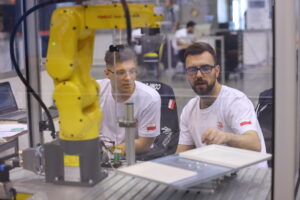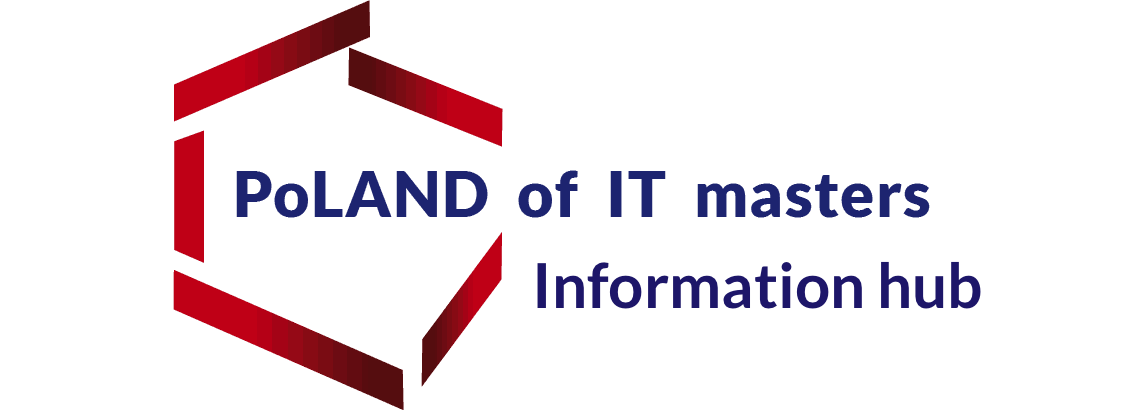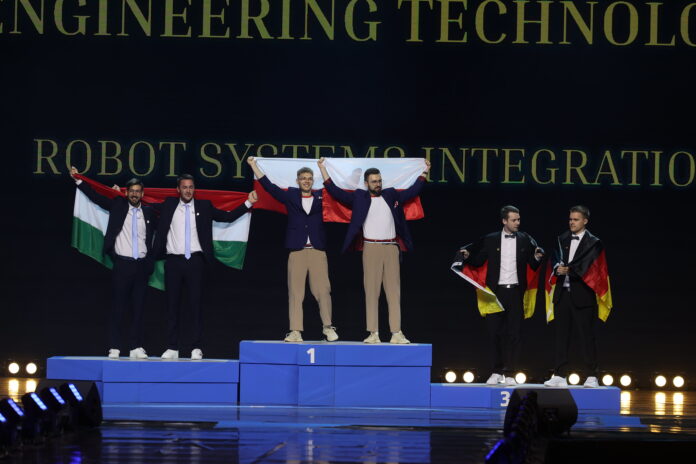Hubert Krasuski and Piotr Wyrzyk won one of three gold medals for Poland during the EuroSkills in robot integration. Both of them are 23-year-old students of the Warsaw University of Technology at the Faculty of Mechatronics.

Polish team
Piotr Wyrzyk always liked programming but didn’t enjoy sitting in front of the computer and typing codes all the time. The opposite, he wanted how you could see the effect: how a programmed unit could perform a specific process. So he became interested in robotics in junior high school. He regularly attended robotics classes as part of the PW Junior program. Because lectures and exercises were held, among others, at the Faculty of Mechatronics, no wonder he went to study there. In turn, Hubert Krasuski fell in love with robotics by assembling robots from Lego bricks. Specifically Lego Bionic, which consisted of mechanical figures resembling humanoid robots.
They learned about the international EuroSkills competition from a lecturer teaching robotics at their faculty. Shortly after they won a robot programming competition for universities. Thanks to this, they received a wild qualifying card for SkillsPoland 2022 in Gdańsk, which they won. It allowed them to participate in EuroSkills Gdańsk 2023, where they achieved another success. It is the effect of, among others, that they not only study but also work in their profession. And they are, therefore, more familiar with contact with robots. They both found permanent jobs through student internships. Piotr Wyrzyk works part-time at ABB, a robot manufacturer. And Hubert Krasuski at CoRobotics, which distributes industrial and collaborative robots, robotics, and production automation.
About competition
During the competition, participants received a box with a robot attached, details packed in the cabinets and a description of the process. One of them was to move the product from the pallet to the box, pack other products according to the diagram and in a specific configuration, and then put the entire package back on the pallet. However, the whole station for this task had to be created independently.
The most significant difficulty was optimally arranging all the details. So the robot could carry out a given process in the shortest possible time. It required thinking about how to put individual elements and how to write the program. In the end, of course, whether the robot performed all the specified activities was checked. If too much time was wasted on programming, the device would not have time to run, losing most possible points. Each stage of work was assessed separately. But you could win the competition only by implementing a specific process in its entirety.
Both medalists undoubtedly believe that EuroSkills helped them develop their professional skills. Daily, they work with different brands of robots during competitions equipped with equipment by the Japanese company Fanuc, whose robots are yellow. Thanks to this, they expanded their programming skills and gained new knowledge and more experience. At work, they deal primarily with programming, and here, they had to plan the station, program it, connect it, and test it.
Expert’s opinion
Jarosław Panasiuk is an expert from the Military University of Technology in Warsaw and the supervisor of the Polish team. He said that the path to success is the coordination of the programming part with the engineering part related to the construction of the station. And then the programming and testing of solutions. Just one mistake, and the team falls out of the lead. It is elementary to make a mistake because there is no time for testing, and only through testing can errors be eliminated. During preparations, the Polish team focused on practicing program functions and learning programming because this is the key to everything. The player is required to be multi-tasking and know a lot of options. There is so much to do and so little time that some things must be done “automatically.”
More info about EuroSkills 2023 medalists from Poland is here.
More info about EuroSkills 2023 is on WorldSkills page.



